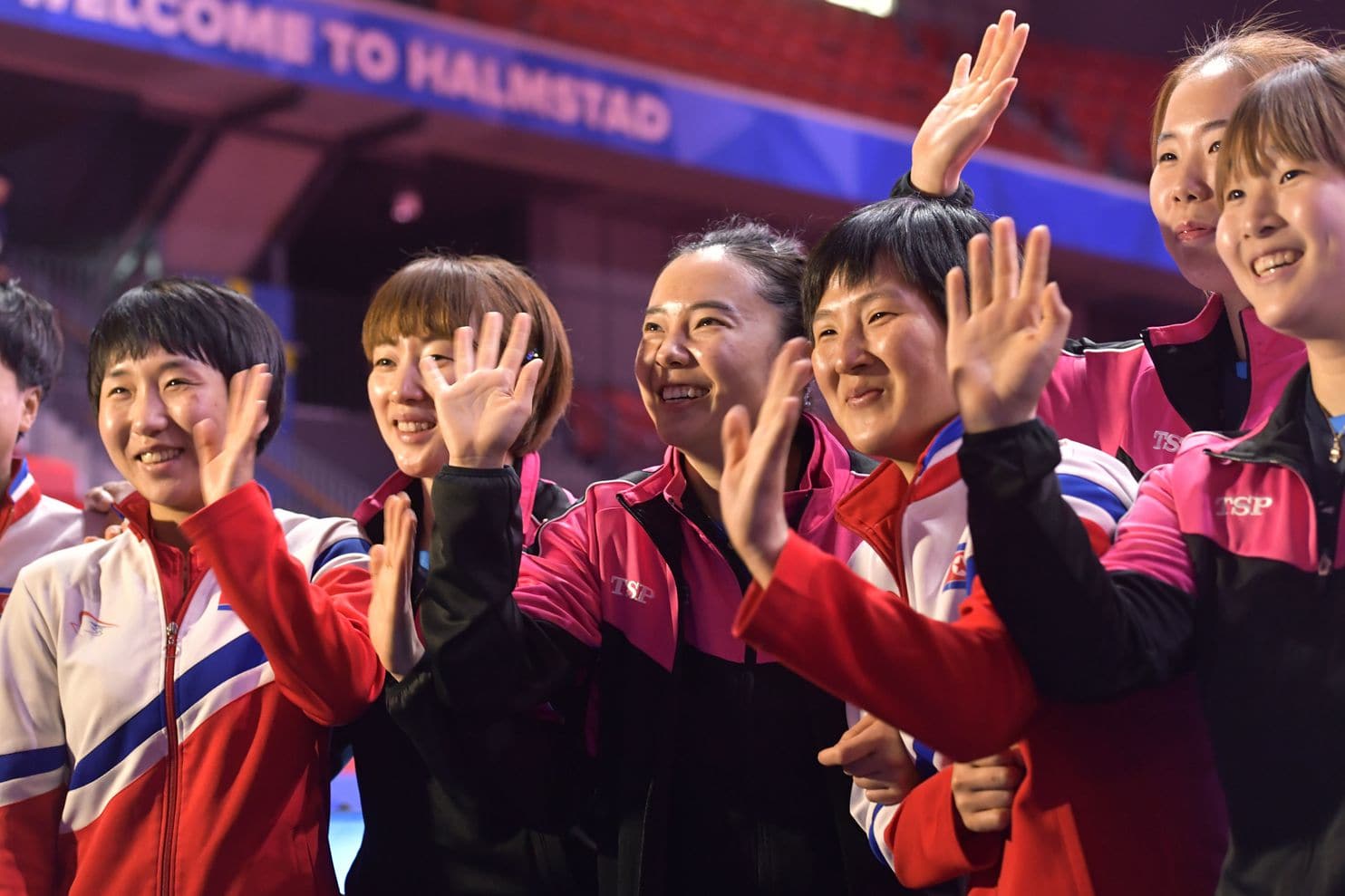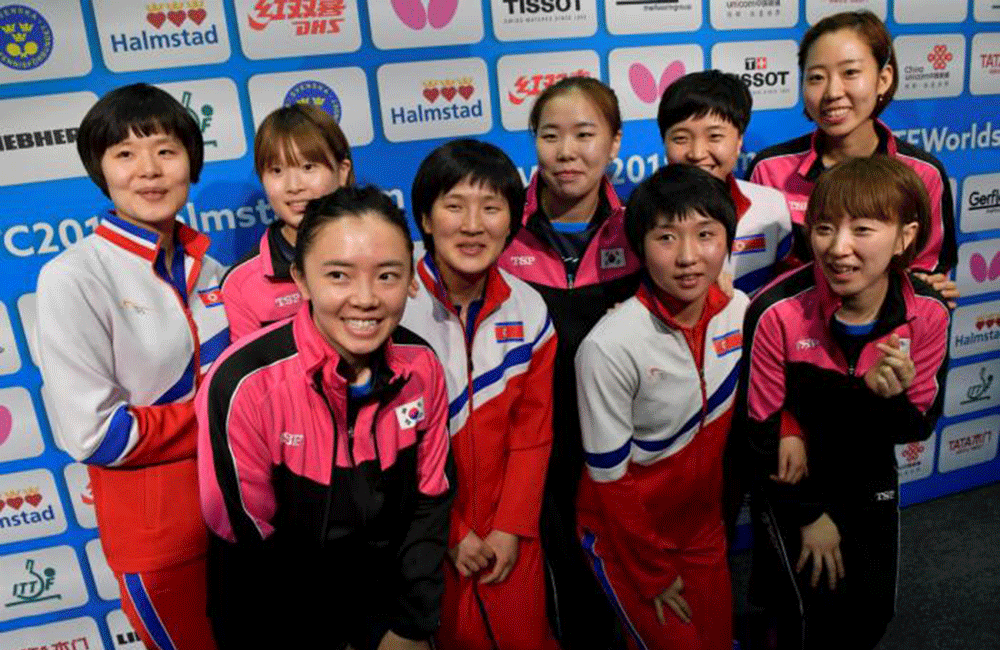Pingpong diplomacy is uniting North and South Korea at the table tennis world championships.
The women’s teams from the two countries, originally competing separately, decided Thursday to combine teams rather than play each other in the quarterfinals.
“When I informed the board of directors about this development, the unified team received a standing ovation from the delegates who showed their sign of support to this historic move,” ITTF President Thomas Weikert said.
Members of North Korea and South Korea table tennis teams pose together for a group photo after deciding to combine their teams to avoid playing against each other in the Quarter Finals of the World Team Table Tennis Championships at Halmstad Arena in Halmstad, Sweden, Thursday May 2, 2018. Their quarter final match was canceled after North and South Korea decided to play together in the semi finals, rather than eliminate one of their teams in the quarter final. ( Jonas Ekstromer/TT via AP) (Associated Press)
The move follows recent cross-border diplomacy by state leaders at home. North Korean leader Kim Jong Un and South Korean President Moon Jae-in promised last week to work toward the “complete denuclearization” of the Korean Peninsula.
The combined Korean team at the table tennis tournament will next play Japan in the semifinals Friday.
“(It’s) an important statement to promote peace between our countries through table tennis,” the South Korean team said.
In March, North Korean Foreign Minister Ri Yong Ho made a surprise visit to Sweden to meet with Sweden’s foreign minister, Margot Wallstrom. After three days of talks, they said they discussed the “opportunities and challenges for continued diplomatic efforts to reach a peaceful solution” to the Koreas’ security dispute.
“I welcome the announcement that North and South Korean table tennis teams have decided to form a joint team during the world championship in Sweden,” Wallstrom wrote on Twitter.
The original “pingpong diplomacy” was between the United States and China in the early 1970s, leading to President Richard Nixon’s breakthrough visit in 1972.
In the Koreas, sports were another battlefield between the countries at the height of the Cold War. North Korea boycotted the 1986 Asian Games and the 1988 Olympics, both held in Seoul.
But sports exchanges briefly flourished in the early 1990s before the onset of a nuclear crisis. This cooperation included the North-South combined women’s table tennis team championship win over China in 1991, and a unified world youth boys’ soccer team that reached the quarterfinals later that year.
After the leaders of North and South Korea met for landmark summit talks in Pyongyang in 2000, athletes from the Koreas walked behind a blue-and-white “unification” flag for the first time at the opening ceremony of the Sydney Olympics. This happened at other major international sports events, but the practice stopped after the 2007 Asian Winter Games in Chuangchun, China.
The two countries marched together again at this year’s Pyeonchang Olympics, and the women’s hockey team at the games featured players from both sides of the border.
Relations have thawed quickly since then, leading to a possible meeting between Kim and President Donald Trump this month or next.
(AP)


Leave your comments
Login to post a comment
Post comment as a guest